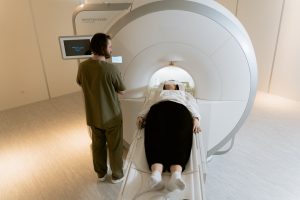As people age, they often need more time to remember names or facts. Verbal pauses become more frequent as more mature citizens need a few more minutes to remember what they wanted to say or to properly recall a forgotten detail. Such contexts of memory loss are not uncommon. However, sometimes memory loss is much more severe than simply denying the name of an acquaintance or having difficulty remembering a conversation you recently had. Dementia is very common among old people. Many professionals advise people on the best supplements to help dementia.
What Causes Dementia?
 Some causes may be associated with the disease. Dementia often signals the onset of Alzheimer’s disease, a degenerative and eventually fatal disease that affects many older Americans. Vascular dementia, a type of dementia often associated with stroke, is more common in Alzheimer’s patients. Fortunately, dementia can sometimes be treated economically. Sometimes the symptoms of depression are also misdiagnosed as dementia. Unlike dementia, effective treatment of depression can alleviate these symptoms.
Some causes may be associated with the disease. Dementia often signals the onset of Alzheimer’s disease, a degenerative and eventually fatal disease that affects many older Americans. Vascular dementia, a type of dementia often associated with stroke, is more common in Alzheimer’s patients. Fortunately, dementia can sometimes be treated economically. Sometimes the symptoms of depression are also misdiagnosed as dementia. Unlike dementia, effective treatment of depression can alleviate these symptoms.
What Are the Symptoms of Dementia?
Although the person with dementia may remember that they have difficulty remembering things, it is often family members or friends who recognize that something is wrong. As dementia progresses, the person has difficulty doing tasks that were once simple, such as planning daily life, making decisions, running simple errands, and understanding or using certain words. Often, people with dementia have difficulty remembering what they are doing or feel lost in commonly recognizable places. Over time, people with dementia may forget how to perform common, everyday behaviors. People in the advanced stages of dementia often actually lose the ability to recognize their loved ones and heal them.
How Is Dementia Diagnosed?
 Although there is no single medical test to determine if a person has dementia, doctors have many strategies to diagnose the problem. They will review the patient’s medical and health history, often by talking to members of the person’s family, to determine if there is an inherited tendency to develop dementia. The doctor will also usually perform a series of memory tests, such as asking the person to remember what day or month it is or to recall events or titles that the patient should understand.
Although there is no single medical test to determine if a person has dementia, doctors have many strategies to diagnose the problem. They will review the patient’s medical and health history, often by talking to members of the person’s family, to determine if there is an inherited tendency to develop dementia. The doctor will also usually perform a series of memory tests, such as asking the person to remember what day or month it is or to recall events or titles that the patient should understand.
These tests should provide information about whether the person’s ability to think is normal or if there is cause for concern. He or she may perform blood tests, evaluate thyroid problems, make sure the person does not have any medical conditions or even perform an MRI or CT scan to rule out the possibility of a brain tumor or other brain injury. These tests may also reveal shrinkage of the brain, which could indicate that dementia has set in.

